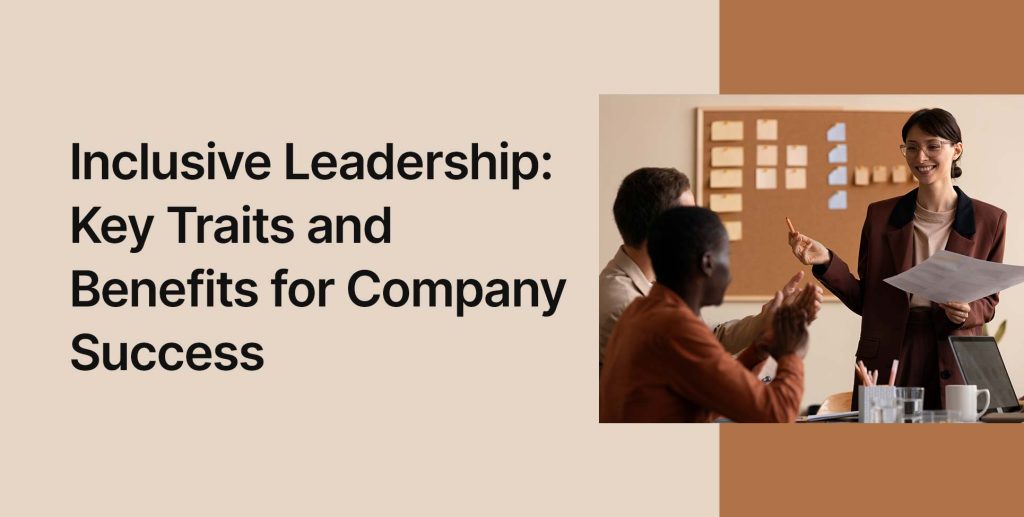Group Feedback: How to Use Collective Opinion to Foster a Culture of Growth and Innovation

Unveiling the Significance of Collective Input
In the hustle and bustle of today’s corporate environment, staying ahead of the competition requires more than just innovative products or services; it demands a deep understanding of the dynamics within an organization. Harnessing the power of collective opinion can serve as a catalyst for transformation, enabling organizations to elevate their performance and foster a culture of continuous improvement. This is especially pertinent in Nigeria, where businesses are increasingly looking for ways to remain agile and responsive in a fast-evolving market.
Understanding the impact of group feedback begins with recognizing its numerous benefits. For instance:
- Diverse Perspectives: When individuals from various backgrounds collaborate, they bring unique insights that can lead to more comprehensive solutions. A Nigerian tech start-up, for instance, might benefit from input gathered from both seasoned professionals and fresh graduates, resulting in innovative platforms that are attuned to local needs.
- Increased Engagement: Employees who feel that their voices matter are more likely to be invested in their work. This emotional buy-in drives productivity and can enhance company morale, creating a cohesive work environment. An example could be a local manufacturing firm implementing regular feedback sessions where ground-level employees can share their suggestions on process improvements, leading to increased efficiency and lower production costs.
- Informed Decision-Making: Group insights are vital in spotting potential issues and opportunities that may go unnoticed in individual evaluations. This collaborative approach can unveil market trends and customer preferences that are particularly relevant to Nigerian consumers, ensuring that organizations remain competitive within their sectors.
In Nigeria’s diverse business landscape, effectively integrating group feedback can be transformative. For example, a telecommunications company may hold focus groups that involve customers from various demographic segments, allowing them to tailor mobile plans that cater specifically to different lifestyles and usage patterns. This not only serves the business objectives but also fosters a deeper connection with the customer base.
As we examine the dynamics of group feedback further, we will delve into actionable strategies and real-life success stories that illustrate the power of collective opinions in enhancing organizational culture. Join us on this journey to uncover how fostering a feedback-driven approach can unlock the potential of teamwork, driving growth and innovation in your organization.
CHECK OUT: Click here to explore more

Implementing Effective Group Feedback Mechanisms
For organizations looking to foster a culture of growth and innovation, implementing effective group feedback mechanisms is crucial. Just as a tree grows strong roots, a business needs a solid foundation of open communication and input from its members to thrive. In Nigeria, where diverse cultural backgrounds and experiences can significantly impact workplace dynamics, facilitating structured environments for feedback becomes paramount.
One of the most critical steps in establishing an effective feedback culture is to create a safe space where employees feel comfortable sharing their thoughts without fear of repercussion. This can involve:
- Establishing Clear Guidelines: Organizations need to define the purpose and expectations of feedback sessions. Clear guidelines help participants understand how their feedback will be utilized and encourage constructive criticism rather than personal attacks. For instance, a Lagos-based consulting firm could outline the focus areas for feedback, ensuring discussions remain relevant and productive.
- Encouraging Diverse Participation: To maximize the benefits of collective opinion, it is important to encourage participation from all levels within the organization. Including voices from different departments creates a more holistic view of the business environment. For example, an agricultural co-operative in Kaduna could benefit from insights gained from both farmers and supply chain managers, leading to improved processes and product delivery.
- Utilizing Anonymous Channels: Some individuals may be hesitant to voice their opinions openly due to company hierarchies or fear of rejection. Offering anonymous feedback options, such as suggestion boxes or online surveys, can help gather more honest insights. An organization focused on employee welfare can deploy an anonymous feedback tool to assess workplace satisfaction and identify areas for improvement.
Moreover, regularly scheduled feedback sessions can create a rhythm of communication that encourages a culture of openness. Organizations could adopt practices such as bi-weekly team check-ins or monthly brainstorming workshops, allowing employees to engage regularly. A tech start-up in Abuja might initiate “innovation days,” where teams collaborate to discuss ideas and suggestions, thereby promoting ongoing dialogue and creativity.
It’s essential to not only gather feedback but also act on it. Organizations must ensure that the feedback received is processed, and actionable insights are shared with the team. This transparency can reinforce the notion that every voice matters, cultivating trust and reinforcing the feedback loop. For instance, when a retail business in Port Harcourt implements employee suggestions regarding customer service practices, employees feel valued and motivated to continue contributing.
As we explore deeper strategies and real-life examples of effective group feedback utilization, we will highlight the transformative effects of establishing a feedback-driven work environment. Embracing collective opinion is not just about enhancing company performance; it is about building a resilient workforce that continuously adapts and innovates in the ever-changing Nigerian market.
| Advantage | Description |
|---|---|
| Enhanced Decision-Making | Collective input leads to more informed choices, integrating diverse views. |
| Increased Engagement | Inviting feedback cultivates a sense of belonging, prompting active participation. |
Within the framework of “Group Feedback: How to Use Collective Opinion to Foster a Culture of Growth and Innovation”, organizations can harness the power of collective insights to drive progress. Enhanced decision-making is one of the key benefits, as it allows organizations to pool knowledge, thus leading to more well-rounded resolutions. Furthermore, this process can also unlock creativity, pushing boundaries and fostering innovative solutions.Moreover, increased engagement stands as a vital component of a thriving workplace. By actively seeking out and valuing opinions, businesses transform their workforce into a collaborative community, thereby enhancing job satisfaction and retention rates. This dynamic creates an environment where everyone feels valued and empowered to contribute ideas and solutions. As organizations explore new methods to integrate group feedback, the potential for growth and innovation becomes more accessible, capturing the interests of forward-thinking leaders and teams alike. Discovering the full scope of these benefits encourages a deeper understanding of collaborative culture.
YOU MAY ALSO LIKE: Read read another article
Leveraging Technology for Enhanced Feedback
In today’s digital era, leveraging technology can significantly enhance the efficiency and effectiveness of group feedback processes. Organizations in Nigeria can take advantage of various technological tools that streamline communication and promote collaborative input. For instance, digital platforms such as Slack or Microsoft Teams offer integrated channels for real-time feedback, enabling employees to voice their opinions instantly. This immediacy can lead to rapid iterations on ideas and processes, fostering a more innovative environment.
Furthermore, artificial intelligence (AI) can play a pivotal role in analyzing feedback patterns and trends. Businesses can harness AI tools to sift through large volumes of feedback data, identifying recurring themes and actionable insights that may otherwise go unnoticed. A financial technology company in Nigeria could utilize such platforms to enhance customer service by studying feedback trends, allowing for more tailored products and services in alignment with customer needs.
Training Managers to Facilitate Feedback
In order to cultivate a robust feedback culture, it is essential to equip managers with the necessary skills to facilitate effective feedback sessions. Training programs should focus on communication techniques that encourage open dialogue and foster trust among team members. Leaders should be trained not only to receive feedback but also to interpret and react to it constructively. For example, a manufacturing firm in Enugu could implement workshops that teach supervisors how to effectively engage their teams, ensuring each member feels heard and valued.
Moreover, using peer feedback as a development tool can amplify the learning process. Establishing a buddy system or peer-review circles allows employees to give and receive constructive feedback from one another, creating an additional layer of support within teams. This collaborative approach not only enhances individual performance but also strengthens team dynamics. For instance, a creative agency in Ibadan might organize regular creative critique sessions where designers and copywriters share insights, resulting in improved project outcomes.
Creating a Feedback-Driven Recognition System
An effective way to encourage a culture of growth through feedback is by creating a recognition system that rewards *not only* individuals but also teams for their contributions based on feedback received. Acknowledging achievements that stem from collective input can motivate others to participate enthusiastically. A telecommunications company in Abuja could launch an employee recognition program that highlights teams who successfully implemented suggestions from feedback, showcasing these successes during quarterly meetings.
- Highlighting Impact: By broadcasting success stories that arose from feedback, organizations can illustrate the tangible benefits of collective opinions, inspiring others to engage actively in the feedback process.
- Promoting Continuity: Creating ongoing appreciation initiatives ensures that feedback becomes part of the company culture, seamlessly integrated into day-to-day operations.
The power of group feedback in fostering a culture of growth and innovation cannot be overstated. Through effective mechanisms, open training, and recognition of contributions, organizations can build structures that not only encourage feedback but also actively implement it. In the competitive landscape of Nigeria, businesses that prioritize collective opinion are better equipped to adapt, thrive, and innovate, ultimately leading to sustainable success.
CHECK OUT: Click here to explore more
Conclusion: Embracing Collective Wisdom for Sustainable Growth
In conclusion, harnessing the power of group feedback is essential for organizations looking to cultivate a culture of growth and innovation. By implementing structured feedback processes, managers can create a supportive environment where every employee feels empowered to share their insights. The integration of technology facilitates real-time communication and allows for the analysis of feedback patterns, thereby enhancing decision-making. Companies in Nigeria, such as those in the tech and telecommunications sectors, can greatly benefit from adopting tools that streamline feedback processes and encourage collaborative input.
Furthermore, investing in training for managers fosters open dialogue and ensures that feedback is not only received but also acted upon constructively. Engaging employees in peer feedback initiatives not only enhances individual performance but also promotes a sense of community. Recognition systems that celebrate achievements resulting from collective feedback inspire continued participation and enthusiasm among team members.
Organizations must recognize that a feedback-driven culture is a continual journey rather than a destination. It requires consistent effort to implement changes and iterate on practices that resonate with the team. As Nigerian businesses navigate an increasingly competitive landscape, those that embrace collective opinion will not only survive but thrive, drawing on the wealth of insights from their teams to spur innovation and drive sustainable success.


